The time has come for Infiniti to move downmarket. Now that questions have arisen in your mind, read the evidence to support the judgement. Then learn about ways Infiniti could remedy their predicament.
Last month, Infiniti sold less than half as many cars as Acura in Canada. Way out in front of Infiniti were luxury automakers like Lexus, Mercedes-Benz, BMW, and Audi. For proof, check this Sales Stats report. The story wasn’t much different in July.
Meanwhile, in the grand ol’ USofA, Infiniti was 14,835 sales behind Lexus…. in August alone. We’re not talking about year-to-date sales through August. No, Infiniti, the company started by Nissan at the same time Toyota birthed Lexus, sold 14,835 fewer automobiles than Lexus in America, in August. Troubling. July was better; sort of.
Though a profitable business with good products and placements in both the original Good 12 and the first Good 12 Supersize, Infiniti just doesn’t seem to be selling enough of its core products to satisfy me. More important to some analysts would be Infiniti’s lack of a complete model range to tackle Benz, BMW, and Audi. While Lexus, Audi, and BMW now offer nine distinct model ranges; Mercedes-Benz has thirteen. Infiniti? Just seven at present.
Yet introducing new vehicles in categories which heretofore did not exist never earns praise from The Good Car Guy. (See BMW X6, Mercedes-Benz R-Class, Lexus HS250h as examples.) Obviously those other automakers have expanded their showroom options by utilizing the products they presently possess. The aforementioned BMW X6 is very much an X5 – and though hated by moi – it costs BMW little and earns BMW lots. Infiniti could sell more cars by, well… making more cars. This is true.
Ah, close that door for a second and watch another open unto you. In August of 2009, BMW 3-Series sales dropped considerably (compared with August of ’08) yet still topped 9800. In fact, adding 1-Series sales to the mix (since the 1 is basically a shrunken 3) takes BMW’s small car total to 10,747. Yes, BMW’s small car range outsold Infiniti’s whole lineup by more than 3,000 vehicles. Spot the problem?
The quickest way to make up the gap isn’t going to be at the top end of the range with more QX56 sales. Infiniti only sold 608 QX SUVs in August, and that market is shrinking anyway. If Infiniti wants to sell a lot more cars without incurring great R&D costs on Father Nissan’s balance sheet, they’ve got to sell more G37 sedans, coupes, and convertibles.
Of course, how do you sell more G37 sedans, coupes, and convertibles ($33,250/$35,900/$43,850 in America, $37,990/$45,200/$57,400 in Canada) without cutting the pricetag and sacrificing your profit?
Let’s take a look at BMW as a prime example. Offering their 3-Series sedan with three different engines and the option of all-wheel drive on the two gasoline-powered cars is a good start. The coupe is then offered with two engines and the possibility of all-wheel drive on both. BMW’s hardtop-cabrio 3-Series can be had with either six-cylinder and the wagon uses the least powerful engine with or without all-wheel drive. Throw in the M version and its sedan, coupe, and convertible variations as well as the 1-Series with its two engine options and two bodystyles and you…. have… got…. to…. start…. considering the organizational capabilities of factory managers.
Beeindruckend, as they say in Munich.
Meanwhile, at Infiniti headquarters circa 2003, product planners wisely decided to severely limit G derivations. All-wheel drive is an option on the sedan. Only now is there a convertible. And one size fits all in the engine compartment.
‘Tis there I see the trouble. Six years on and the Infiniti G37 is an established player in the lower-priced section of the luxury market in North America. Yet while BMW sold the 3-Series more than 9,000 times in August, Infiniti sold 3,341 G37 sedans and 1,562 G37 coupes. Nissan created one of the best V6s on the market – at one time a 3.0-litre, then a 3.5 and now a 3.7 – and their desire to use it everywhere, all the time is kind of nice for those who can afford $33,250 for a G37.
Noting the $5,700 price difference between the BMW 328i and the BMW 335i (trim and equipment differences, notwithstanding), it’s easy to see that BMW’s figured it out. Sacrifice 70 horsepower. Save $5,700. In Canada, BMW provides the option of the 323i. Equipped with a 200-bhp 2.5L inline-six, the 323i is $14,000 cheaper than a 335i. Priced at $34,900, BMW’s 323i sedan is priced beneath top-of-the-line Honda Accords.
Is there not room for Infiniti to sell a G30, for instance? I’m not generating some decidedly out-of-the-box suggestion for Infiniti to drastically shorten the wheelbase of the G37, tinker with the styling, up the sporting quotient, and sell a 1-Series competitor called the D37. No, just slot a smaller six-cylinder under the hood of the current G. Shock us with a pricetag of $29,990. Turn a few standard features into options. Colour choices would be limited to black, white, and blue to ease the pain of product planners and factory managers.
Infiniti wouldn’t be losing any money, after all. This older six-cylinder has, perhaps, been put out to pasture and simply needs emissions updating. By selling the car as a pseudo-stripper model, Infiniti justifies the higher pricetag of the profit-laden G37. Consumers will love the fuel economy gains, too.
And the result? 2,500 extra Infiniti sales every month in America.
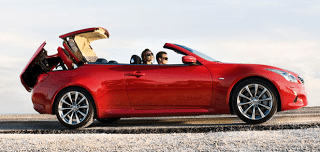 Necessary Reading:
Necessary Reading:
Infiniti USA
Infiniti Canada
evo‘s comparo of G37 and 335i



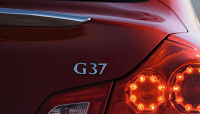





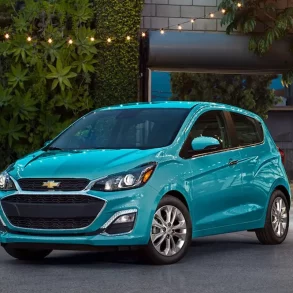


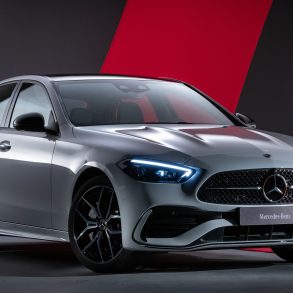
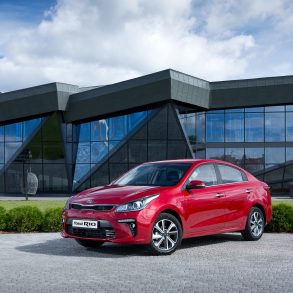
*Update*
Infiniti G to receive 2.5L turbocharged four-cylinder. Via InsideLine